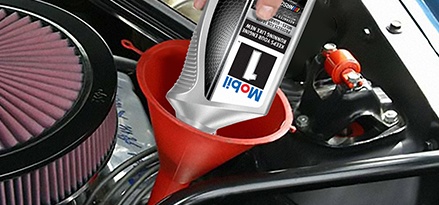As an automobile owner, one of the essential maintenance tasks is regular oil changes. The type of oil used can play a significant role in the lifespan of your engine. In recent years, synthetic oil has gained popularity due to its potential benefits and improved performance compared to conventional oil.
Advantages of Synthetic Oil
Synthetic motor oil has several advantages over conventional oil:
- Lasts Longer: Synthetic oil provides longer intervals between oil changes, thanks to its superior molecular structure and ability to resist breakdown. This results in significant cost savings and convenience for car owners.
- Improved Performance: Synthetic oil stays cleaner for a more extended period, reducing engine deposits and sludge buildup. This cleanliness enhances engine performance and fuel efficiency.
- Better Temperature Resistance: Synthetic oil can withstand higher temperatures compared to conventional oil. This ability allows your engine to operate at optimal levels, even in extreme temperature conditions.

Credit: www.amazon.com
Disadvantages of Synthetic Oil
While synthetic oil offers numerous benefits, it’s essential to consider the potential disadvantages:
- Possible Oil Leaks: In older engines with loose seals and gaskets, synthetic oil’s lower pour point and flowing characteristics may lead to oil leakage.
- Slightly Lower Fuel Economy: Multi-grade motor oils using synthetics may exhibit slightly less fuel economy at highway speeds compared to mineral oil.
Recommended Synthetic Oil Change Intervals
The frequency of oil changes depends on various factors, including the type of oil used and the vehicle manufacturer’s recommendations. Although synthetic oil lasts longer than conventional oil, it’s still crucial to follow the manufacturer’s recommendations. Some general guidelines include:
- For most vehicles using synthetic oil, oil change intervals typically range from 7,500 to 10,000 miles. However, it’s best to consult your vehicle’s owner’s manual or the manufacturer’s recommended guidelines for accurate information.
- For vehicles under severe driving conditions, such as frequent towing or extreme temperatures, the interval may be shorter.
It’s important to note that some car manufacturers have extended their recommended oil change intervals due to advancements in engine technology and the use of synthetic oils. However, always remember to monitor your oil levels regularly, as low oil can damage your engine.

Credit: www.mobil.com
Conclusion
In summary, synthetic oil offers several benefits, including longer intervals between oil changes, improved engine performance, and better temperature resistance. While there may be some potential drawbacks, such as possible oil leaks and slightly lower fuel economy, the advantages of synthetic oil outweigh the disadvantages.
When deciding whether to use synthetic oil in your car, it’s essential to consider the manufacturer’s recommendations, your driving conditions, and the specific needs of your vehicle. Consulting with a trusted mechanic or referring to your owner’s manual will provide valuable insights into the best oil choice for your car.
Read More:


